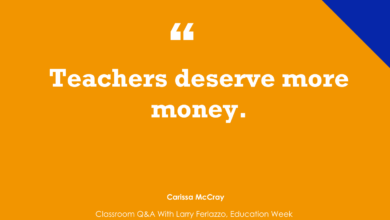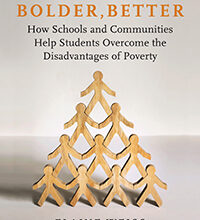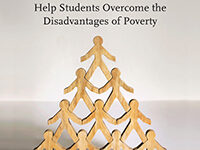The Importance of Teaching Life Skills Alongside Traditional Subjects

In today’s fast-evolving world, education plays a more dynamic role than simply imparting knowledge of traditional subjects like math, science, and literature. Alongside academic excellence, there’s a growing consensus on the importance of teaching life skills—practical, essential skills that help students effectively manage personal, social, and professional challenges. Life skills, which include communication, problem-solving, financial literacy, and emotional resilience, equip students with the tools needed for real-world success beyond the classroom. As educators, parents, and policymakers emphasize the value of holistic education, the integration of life skills into traditional curricula has become increasingly relevant.
Why Life Skills Matter as Much as Academics
Life skills provide a foundation for individuals to navigate the complexities of adulthood. While traditional subjects teach students to think critically and solve structured problems, life skills bridge the gap between theory and practice. Imagine a student who excels in science but struggles to manage personal finances or work as part of a team. Without life skills, academic knowledge alone may fall short in preparing students for independent, fulfilling lives.

Life skills empower students to:
- Communicate Effectively: Good communication skills are essential in all aspects of life, from job interviews to personal relationships. These skills help individuals express themselves clearly, listen actively, and resolve conflicts amicably.
- Manage Finances: Basic financial literacy, including budgeting, saving, and understanding credit, is essential for financial independence. Without it, young adults may face unnecessary financial difficulties.
- Adapt to Change: Life is unpredictable, and adaptability helps individuals manage changes and overcome challenges with resilience and a positive mindset.
Balancing Traditional Subjects with Life Skills Education
The current education system largely emphasizes academic subjects, often leaving life skills development as an afterthought. However, students would greatly benefit from a more balanced approach, where life skills are interwoven with traditional curricula. For instance, a math class could incorporate budgeting exercises, or a literature class could include lessons on empathy and communication through character analysis. Integrating these aspects would allow students to see the relevance of both academic knowledge and practical skills, fostering a more engaged and motivated approach to learning.
Adding life skills to the curriculum need not detract from academic rigor. In fact, when students understand how their studies apply to real-world situations, their engagement and retention rates often increase. Transitioning from a purely academic focus to one that includes life skills may initially face resistance, but the long-term benefits—such as improved mental health, better social skills, and increased employability—make it a worthwhile shift.
How Life Skills Enhance Traditional Learning
Life skills not only stand on their own but also enhance the understanding of traditional subjects. For example:
- Critical Thinking and Problem-Solving: Traditional subjects often teach students to think critically within set boundaries. Life skills expand this thinking to include decision-making, which is essential for everyday challenges.
- Empathy and Collaboration: Social sciences and humanities may touch on empathy, but teaching it as a life skill promotes emotional intelligence, enabling students to work well in teams and understand diverse perspectives.
- Time Management and Organization: Academic deadlines and tests can teach students about time management, but explicit training in these areas better prepares students to manage their schedules effectively, both in school and in their personal lives.
A well-rounded education that includes life skills not only boosts academic achievement but also equips students to thrive in various aspects of life. By making life skills a core part of the curriculum, schools can foster independent thinkers who are well-prepared for the world beyond the classroom.
Examples of Life Skills to Integrate into School Curricula
Incorporating life skills education involves teaching skills that students can directly apply in their lives. Some life skills that are particularly beneficial include:
- Financial Literacy: Teaching students the basics of budgeting, saving, and investing prepares them to make sound financial decisions in adulthood. Schools can integrate financial education into math classes or even dedicate separate workshops on topics such as taxes and credit management.
- Communication and Interpersonal Skills: Effective communication is vital for personal and professional success. Through group projects and class discussions, students can practice articulating ideas clearly, listening attentively, and managing disagreements.
- Critical Thinking and Decision-Making: Learning how to assess situations and make informed choices is crucial for both academic and real-life applications. Classes in history, for example, can teach students to analyze events and draw conclusions, encouraging a critical mindset.
- Health and Wellness Education: Basic understanding of mental and physical health enables students to make informed lifestyle choices. Physical education classes can go beyond exercise to include mental health discussions, stress management techniques, and nutrition.
- Time Management: By teaching students to plan, prioritize, and manage their time effectively, educators help students become organized, productive adults. Incorporating goal-setting exercises into daily activities helps students practice these skills and recognize their value.
- Adaptability and Resilience: Teaching students how to adapt and bounce back from setbacks is essential in today’s fast-changing world. Role-playing exercises and real-life scenarios can help students learn to face challenges with a positive mindset.
Benefits of Life Skills Education on Mental Health
In recent years, the importance of mental health has become more widely recognized, and life skills education plays a critical role in fostering students’ mental well-being. Teaching students how to cope with stress, manage emotions, and build resilience provides them with tools to maintain their mental health. These skills help reduce anxiety and depression, promote self-confidence, and empower students to seek help when needed. Mental health education should be a core component of life skills, especially given the pressures that students face today.
Moreover, when students are equipped with life skills, they tend to feel more in control of their lives, which directly contributes to their emotional stability. Knowing how to manage time, solve problems, and communicate effectively reduces the feeling of being overwhelmed, giving students a stronger foundation to handle life’s demands.
Overcoming Challenges in Implementing Life Skills Education
Implementing life skills education presents certain challenges, such as limited resources, lack of trained teachers, and a crowded curriculum. However, these challenges are surmountable. Schools can start by incorporating life skills into existing subjects rather than creating separate courses, which requires fewer resources and teacher training.
Teachers can also benefit from professional development programs that help them integrate life skills into their teaching methods. Collaborative learning models, for instance, can be effective, as students learn both subject matter and interpersonal skills through teamwork. Policymakers and administrators must prioritize life skills education by providing necessary funding and support, ensuring that it is treated as a valuable part of the educational experience.
Conclusion: The Need for a Holistic Approach to Education
Incorporating life skills into school curricula is essential for creating well-rounded, prepared, and resilient individuals. By balancing traditional subjects with life skills education, schools can cultivate a generation equipped not only with knowledge but with the practical skills needed to navigate life’s challenges. The shift towards life skills integration is about more than just adding new topics; it’s a transformative approach that views education as a tool for real-world preparedness.
Life skills education is more than a supplementary add-on; it’s a necessity. Schools that embrace this holistic approach will prepare students who are ready to face the complexities of the modern world. For parents, educators, and policymakers, advocating for life skills education is an investment in students’ success—one that pays dividends in personal, social, and professional realms.





